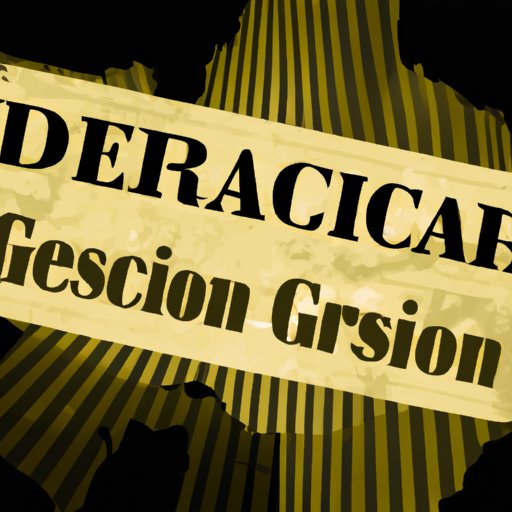Introduction
The Great Depression was a severe economic downturn that began in 1929 and lasted through most of the 1930s. It was the longest and deepest depression of the 20th century, affecting countries in North America, Europe, and beyond. The global economy suffered a massive contraction, with unemployment rates reaching as high as 25%. As governments struggled to respond to the crisis, the world was plunged into chaos.
Economic Impact of the Great Depression and its Role in WW2
The Great Depression had a significant impact on the global economy. Currency devaluation occurred in many countries, making their currencies worth less than before and making it difficult for them to pay off their debts. International trade was also disrupted, as countries imposed tariffs and other restrictions on imports and exports. These measures made it harder for countries to access resources they needed and created economic instability.
The economic crisis caused by the Great Depression also played a role in the outbreak of World War II. Countries were desperate to increase their revenues, so they looked to foreign markets to boost their economies. This led to increased competition between nations, which eventually escalated into war.

Political Instability Caused by the Great Depression and its Contribution to WW2
The Great Depression also caused political instability around the world. In some countries, people turned to authoritarian regimes for answers to their economic woes. This was especially true in Germany, where Adolf Hitler rose to power in 1933. His Nazi party promised to restore Germany’s economy and create jobs, but it also had an aggressive nationalist agenda that included the expansion of German territory.
This political instability contributed to the outbreak of WW2. Many countries wanted to expand their territories and gain access to resources, leading to tensions and conflicts between nations. Hitler’s aggressive expansionism further heightened these tensions and ultimately led to war.

Social and Psychological Effects of the Great Depression and Their Impact on WW2
The Great Depression also had a profound effect on people’s social and psychological well-being. Millions of people were out of work and struggling to make ends meet, leading to desperation and despair. This sense of hopelessness was exacerbated by a rise in xenophobia and anti-Semitism in many countries. People were looking for someone to blame for their suffering, and immigrants and minorities often became the scapegoats.
These social and psychological effects of the Great Depression played a role in the outbreak of WW2. People’s fear and hatred of outsiders made them more willing to accept authoritarian regimes and their aggressive policies. This helped to fuel the conflict between nations and eventually led to war.

Military Buildup Preceding WW2 and Its Link to the Great Depression
The Great Depression also led to a military buildup in many countries. Nations sought to strengthen their militaries in order to protect their interests and gain an advantage over their rivals. This arms race between nations was fueled by fears of invasion and the desire to gain access to resources. The buildup of military forces eventually led to the outbreak of WW2.
Conclusion
The Great Depression had a significant impact on the global economy and politics, setting the stage for the outbreak of WW2. Its effects included currency devaluation, international trade disruption, and economic instability. It also led to political instability, with the rise of authoritarian regimes and aggressive expansionism. Social and psychological effects such as desperation and xenophobia further contributed to the conflict between nations. Finally, the military buildup preceding WW2 was linked to the Great Depression, as nations sought to strengthen their militaries in order to gain an advantage over their rivals. The events of the Great Depression still have implications for today’s global economy and serve as a reminder of the importance of economic stability and cooperation between nations.
(Note: Is this article not meeting your expectations? Do you have knowledge or insights to share? Unlock new opportunities and expand your reach by joining our authors team. Click Registration to join us and share your expertise with our readers.)
